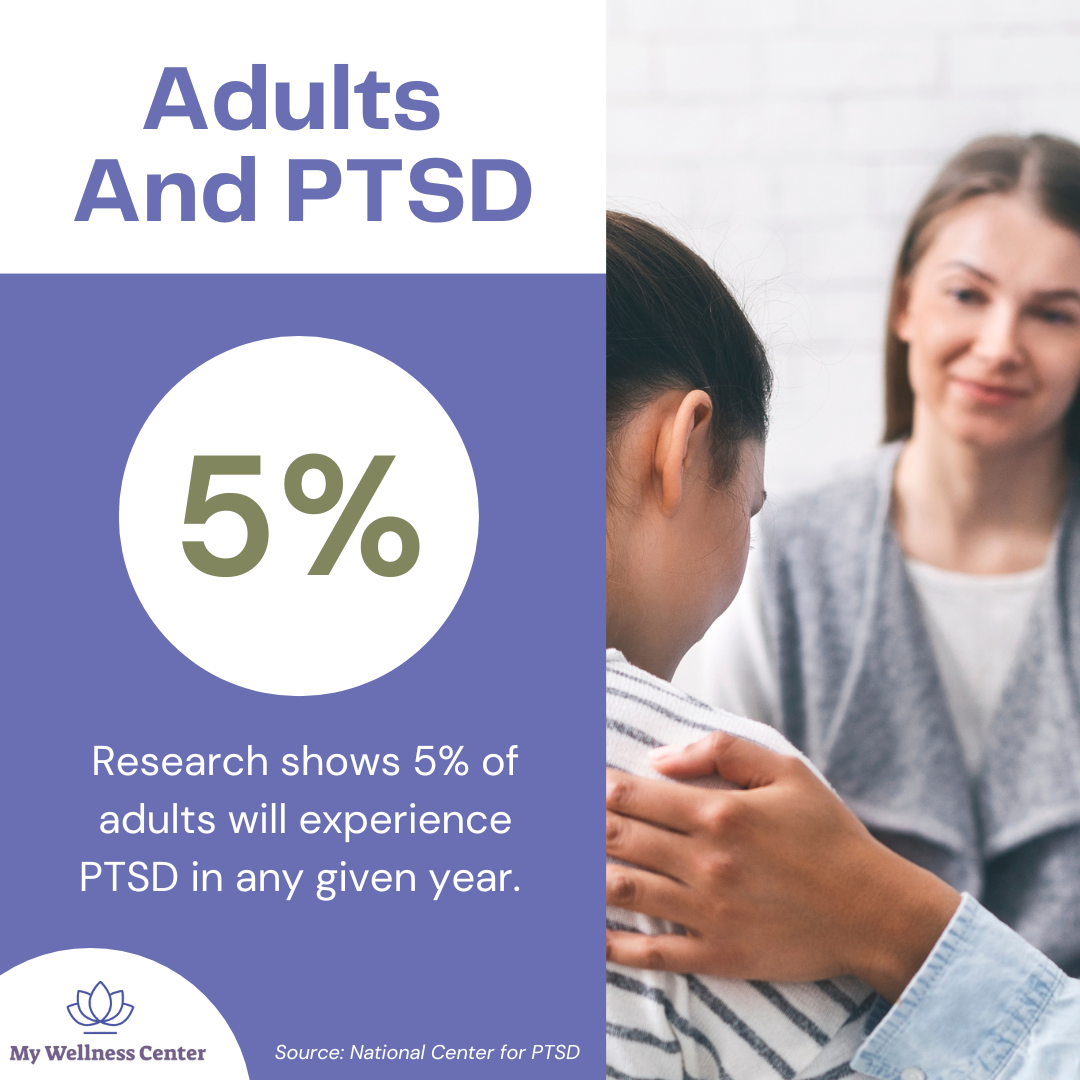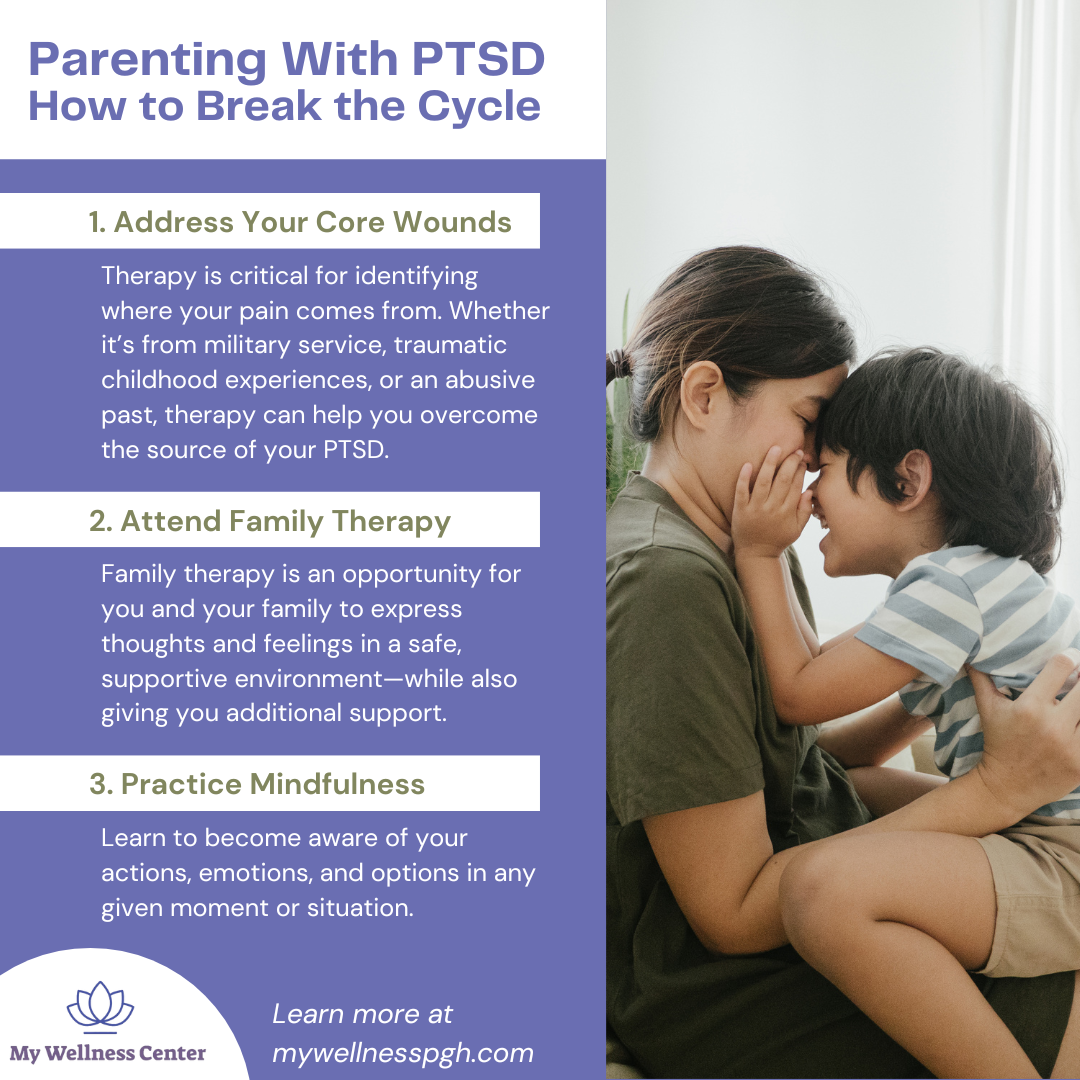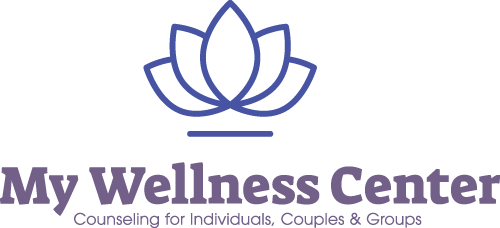Parenting is hard, but parenting with PTSD is even harder. When you’re suffering from post-traumatic stress disorder, managing the challenges and tensions of parenthood feels impossible, and we often revert back to the patterns we grew up with—continuing a cycle of negative parenting behaviors that continue from generation to generation.
And PTSD is surprisingly common. About 6% of Americans will experience PTSD at least once in some point in their lives, according to the National Center for PTSD. Just as bad: 5% of adults experience PTSD in any given year.

With such a high frequency for PTSD among adults, it’s no wonder so many parents struggle to break cycles. It’s such a common phenomenon, the concept was immortalized in the opening stanza of a famous (and profane) English poem by writer and librarian Philip Larkin, “This Be the Verse”:
They fuck you up, your mum and dad.
They may not mean to, but they do.
They fill you with the faults they had
And add some extra, just for you.
Read those final two lines again: They fill you with the faults they had / And add some extra, just for you. We are all products of our environments. When we grow up in difficult, challenging, or unsafe households, we carry that pain with us, and we naturally spread that pain to the people closest to us.
That’s the cycle.
But as an adult in control of your own life, you have the power to break the cycle. Even as a parent with acute or chronic PTSD, you can make positive, healthy decisions that benefit yourself, your partner, and your kids.

How to Parent With PTSD: 3 Ways to Break the Cycle
As a parent, you have one of the most important jobs in the world. Your actions directly affect your kids, your partner, and future generations of your family.
Here’s how to show up as your best self:
1. Address Your Core Wounds In Therapy
If you’re suffering from PTSD, that pain is coming from somewhere. Maybe it’s coming from a difficult childhood experience. Maybe you experienced something disturbing as a first responder. Maybe you spent time in the military.
Or, maybe your stress is more acute. A recent job loss, losing a loved one, or a disruption in an important relationship can create deep wounds that impact your ability to be a loving, caring, devoted parent.
Regardless, addressing your wounds in therapy is critical. Therapy can help you identify the root of your pain, then move beyond that pain in a healthy, productive way.
2. Attend Family Therapy
Family therapy is useful for a variety of reasons:
- Family therapy is an opportunity for everyone to express how they’re being impacted by an individual’s actions.
- Family therapy is a safe, supportive place to be honest and vulnerable with yourself and your family.
- Family therapy provides a structured environment to apologize for your actions, especially if you’ve negatively impacted your partner or children.
- It’s an opportunity to discuss how to collectively manage an individual’s behaviors.
Most importantly, though, family therapy emphasizes community. Although your PTSD may start within your own body and mind, everyone in the therapy session is invested in helping you heal.
There’s power in that collective effort!
3. Practice Mindfulness
Therapy can help you develop heightened mindfulness so you’re better aware of your actions, emotions, and options in any given moment or situation.
Family therapy might be a safe place to ask for forgiveness from others, but personal therapy and mindfulness is an opportunity to ask for forgiveness from yourself. If you’re managing any sort of self-esteem issues that contribute to your cycles of PTSD and negative behaviors, this is your opportunity to practice self-love.
Mindfulness can also help you identify negative thoughts, emotions, or actions in the moment. One of the most common issues we hear is from parents who recognize when they’re behaving in a negative way, but they feel helpless to control it.
Some even say they feel like they have two different people inside of them—one that wants to do good, and one that wants to behave poorly. And, oftentimes, the one who wants to behave poorly wins.
Through mindfulness, you can find safe, healthy ways to act or behave. And you can also develop strategies to feed and heal the “negative” part of self—the one that doesn’t want to be positive. By healing that part of yourself, you can develop healthy strategies for moving forward.
Find Support As A Parent With PTSD
Overcome the challenges of parenting with PTSD by working with our therapists. We’ll help you break cycles, move beyond your trauma, and develop healthy strategies for progressing in life.
To learn more, contact us!

